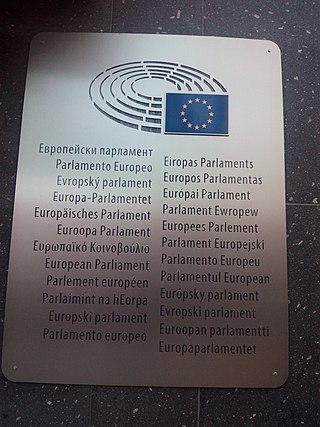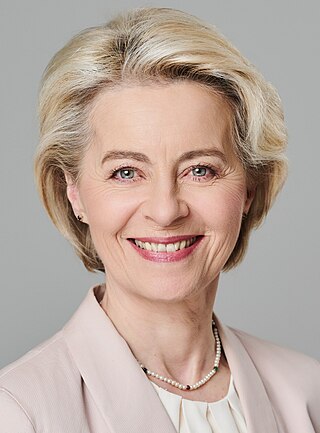Notable alumni
This section needs additional citations for verification .(January 2023) |
- Chris Adami (Brussels I) is a German professor of microbiology and molecular genetics, as well as professor of physics and astronomy at Michigan State University.
- Tommaso Allan (Culham) is a rugby union player for Italy and Perpignan
- Dick Annegarn (Brussels I) is a Dutch songwriter who worked most of the time in France. In his youth he lived in Brussels and he celebrated this city in his most famous song, called "Bruxelles".
- Juan Becerra Acosta (Brussels I) is a Mexican journalist and TV anchor.
- Henry Brett (Culham) is a British champion polo player. [11]
- Ulrich Daldrup (Brussels I) is a German politician and academic. He is Professor of Business Administration and International Management at the Aachen University of Applied Sciences and a former Mayor of Aachen (1994–1999). [12]
- Eric Everard (Brussels and Luxembourg I) is a Belgian manager, who created in 1988 the European Student's Fair. In 1997 he founded Artexis, one of the largest organizers of exhibitions and trade fairs in Europe.
- Giovanni Ferrero (Brussels) is an Italian business manager, chief executive of Ferrero SpA
- Max Gazzè (Brussels II) is an Italian songwriter and musician who worked in Belgium, France and in Italy. He has worked with many European artists including Stephan Eicher and Stewart Copeland.
- Karin Giegerich (Varese) is a German actress, who worked in Italy, Germany, Switzerland and France.
- Florian Henckel von Donnersmarck (Brussels I) is a German film director who worked in Germany and in the United States. He is best known for writing and directing the 2007 Oscar-winning film The Lives of Others and The Tourist.
- Boris Johnson (Brussels I) is a British politician, former leader of the Conservative Party, and former Prime Minister of the United Kingdom (July 2019 – September 2022). He previously held the offices of Mayor of London (2008–2016), and Foreign Secretary of the UK (July 2016 – July 2018). [13]
- Jo Johnson (Brussels I) is a British politician and former UK Minister for Universities and Science (May 2015 – January 2019) (July – September 2019), and Transport (January – November 2018).
- Rachel Johnson (Brussels I) is a British editor, journalist, television presenter, and author. [14]
- Bas Kast (Munich) is a German journalist and writer.
- Christian Keysers (Munich) is a German neuroscientist. In 2004 he received the Marie Curie Excellence Award for outstanding research . [15]
- Thomas Larkin (Varese) is an ice hockey defender. He played with the Italian national ice hockey team.
- Viktor Lazlo (real name Sonia Dronier) (Mol) is a French singer, actress and writer. She worked in Belgium and France. [16]
- Mark Leonard (Brussels I) is a British political scientist, author, and the co-founder and director of the European Council on Foreign Relations. [17]
- Stella Maxwell (Brussels II) is a Victoria's Secret model.
- Elizabeth May (Luxembourg I) is a lawyer and athlete, who is the 2011 ITU Aquathlon World Champion and 2009 European Triathlon Championships silver medalist. She competed in the triathlon event at the 2004 and 2008 Summer Olympics. [18] [19]
- Margherita Missoni (Varese) is the niece of Ottavio Missoni and the daughter of Angela, founders of the Missoni fashion house. After having worked for some years as a model, including for Estée Lauder Companies, she became the icon of the "Missoni acqua" perfume in 2006, thus becoming an active member of the Missoni family group. [20] [21]
- Brian Molko (Luxembourg I) is a songwriter, guitarist and lead vocalist of the band Placebo.
- Morten Helveg Petersen (Brussels I) is a Danish politician for the Danish Social Liberal Party and Member of the European Parliament (2014–). He previously served as a member of the Folketing (1998–2009). [22] [23]
- Sarah Teichmann (Karlsruhe) is a scientist at the University of Cambridge, UK.
- Ursula von der Leyen (Brussels I) is German politician and President of the European Commission (December 2019–). [24] She was formerly a member of the Bundestag (2009–2019), and member of the German government under Chancellor Merkel, holding the positions of Federal Minister of Defence (2013–2019), Federal Minister of Labour and Social Affairs (2009–2013) and Federal Minister of Senior Citizens, Women and Youth (2005–2009). [25]
- Marina Wheeler QC (Brussels I) is a British lawyer, author and columnist.
- Diederik Wissels (Brussels I) is a Dutch jazz pianist who has received many awards such as the Grand Prix de l’Académie Charles Cros, the Prix Adami and the Prix du Musicien Européen de l’Académie du Jazz. [26]
- Mathias Olesen (Luxembourg II) plays for Bundesliga team FC Köln and the Luxembourg national football team.
- Marta Estevez Garcia (Luxembourg I) Spanish-Luxembourgish football player, playing for Luxembourg women's national football team.
- Christos Floros (Luxembourg I and later on Luxembourg II) - Greek-Luxembourgish politician.










